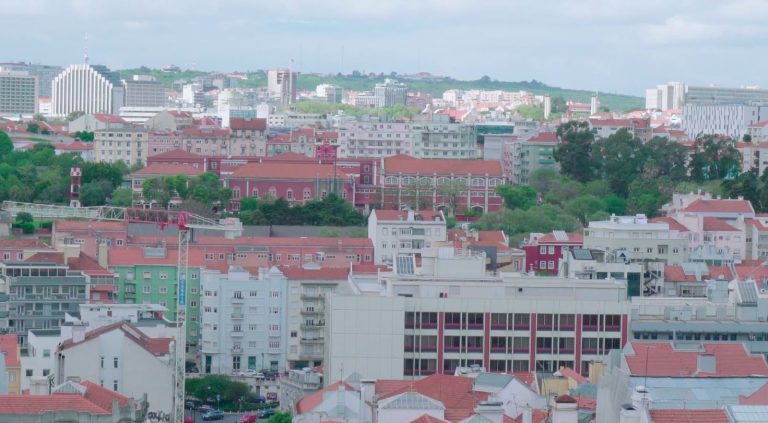Subscribe to our joint NEWSLETTER for
EUTROPIAN &
COOPERATIVE CITY MAGAZINE

Where: Lisbon, Portugal
Who: Daniela Pati
With whom: The city of Lisbon, BIP/ZIP, PT-Local Development Strategy for Priority Intervention
How: Com.Unity.Lab is a bottom-up participatory process that maps neighborhoods through a local approach to urban regeneration. The project aims to decrease and mitigate social, economic, environmental and urban exclusion and enhance social territorial cohesion.

Through the numerous tools created, the project also promotes partnership programs funding local projects in a bottom-up co-governance model to promote employment, education and social-territorial cohesion.
The toolkit has helped Lisbon establish unique solutions to it’s local issues, create a road-map and goals, and set the civic participation and co-governance as a benchmark to ignite sustainable urban local development.
668 applications were submitted between 2011 and 2016, gathering 532 local stakeholders and partners, generating a total of 1 466 activities in the deprived areas.
Between 2011 and 2016, with a total fund of €9,207,754, a total of 232 projects were approved, gathering 532 entities that participated both in the execution and sustainability phases.
These projects generated a total of 1,466 activities developed in BIP/ZIP territories, impacting an average of approximately 98,600 inhabitants each year.

This tool is a crucial one, it helps identify the Priority Intervention Territories of the city based on the overlapping of social, economic, urban and environmental deprivation indexes that express the fracture of the city. The findings of the map data are supported through financial backing for local community projects that respond to local needs. The funds also promote local partnerships to create a sustainable urban development model.
GABIP develops a co-governance framework involving Municipality, Local Boroughs and all relevant stakeholders and citizens organizations. This local office promotes an articulated response among the political, administrative and technical dimensions with local organizations and the community at large
An acronym for “Collaborative Platform for Community-Led Local Development”, this tool promotes a bottom-up co-governance network that develops a global strategy to BIP/ZIP territories and promotes experience sharing to enhance local partners’ skills.The integration of these tools have helped ensure citizen participation, promote development in Lisbon, and create a socially and economically sustainable and inclusive holistic approach thatcovers social, economic, urban and environmental dimensions.
Promoting socio-territorial cohesion through a participatory approach that involves local stakeholders is a must for all cities.The utilization of a bottom-up approach and strategy can be done through a smart, common, effective, flexible and pragmatic tools that when implemented, lead to sustainable urban living that reinforces cohesion and inclusiveness.
These tools can empower municipalities in creating real territorial co-management through local initiative and participation, which means that it can be of great interest to other cities, regardless of their local context and experience. By promoting citizens active involvement and participation, the program serves as an example of how cities can establish their own path and goals, and sets participation as a benchmark for the development of deprived areas.
Consequently, the tools created and developed within the framework of Com.Unity.Lab might prove to be essential to municipalities across the board.
For more information on the project and how Eutropian has acted as a consultant in the com.unity.lab project, please reach out to our expert, Daniela Patti.

| Cookie | Duration | Description |
|---|---|---|
| cookielawinfo-checkbox-analytics | 11 months | This cookie is set by GDPR Cookie Consent plugin. The cookie is used to store the user consent for the cookies in the category "Analytics". |
| cookielawinfo-checkbox-functional | 11 months | The cookie is set by GDPR cookie consent to record the user consent for the cookies in the category "Functional". |
| cookielawinfo-checkbox-necessary | 11 months | This cookie is set by GDPR Cookie Consent plugin. The cookies is used to store the user consent for the cookies in the category "Necessary". |
| cookielawinfo-checkbox-others | 11 months | This cookie is set by GDPR Cookie Consent plugin. The cookie is used to store the user consent for the cookies in the category "Other. |
| cookielawinfo-checkbox-performance | 11 months | This cookie is set by GDPR Cookie Consent plugin. The cookie is used to store the user consent for the cookies in the category "Performance". |
| viewed_cookie_policy | 11 months | The cookie is set by the GDPR Cookie Consent plugin and is used to store whether or not user has consented to the use of cookies. It does not store any personal data. |
